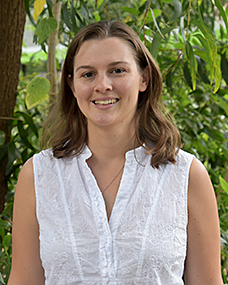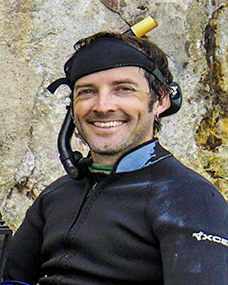Enhancing ocean and coastal resource stewardshipIdentifying, characterizing, and assessing the role of mesophotic coral reef ecosystems in preserving coastal resources in the National Park of American Samoa.

Dr. Veronica RadiceDr. Veronica Radice completed her PhD and first postdoc at the University of Queensland in Brisbane, Australia studying tropical coral reefs of the Indo-Pacific. Her research investigates coral acclimatization to local environmental conditions. She uses field-based experiments and biogeochemical techniques to study how corals acclimatize to shallow versus deep reef environments, with a focus on lower-light mesophotic coral ecosystems. Dr. Radice’s recent work is focused on understanding the impacts of ocean warming on coral recovery following coral bleaching. She completed her bachelor’s degree in Biology at Johns Hopkins University and then worked in a deep-sea coral ecology lab at Temple University. Dr. Radice is excited to join the fellowship studying coral reefs in American Samoa, while based at Old Dominion University.
Dr. Dan BarshisDr. Dan Barshis is an Assistant Professor of Biological Sciences at Old Dominion University. His work examines the evolutionary basis behind stress tolerance in reef-building corals. He employs a combination of field transplantation, controlled acclimation experiments, and advanced genomic techniques to uncover the relative roles of adaptation and acclimatization in determining coral tolerance limits and sensitivity to climate change impacts. Dr. Barshis’ recent efforts have focused around the development and deployment of a highly portable Coral Bleaching Automated Stress System (CBASS) to assess coral bleaching thresholds in remote field settings. He did his undergraduate at the Evergreen State College; MS and PhD at the University of Hawai'i at Manoa; a postdoc at the Hopkins Marine Station of Stanford University; and a second postdoc at the NOAA Fisheries Southwest Fisheries Science Center. |
Last updated: January 9, 2020
